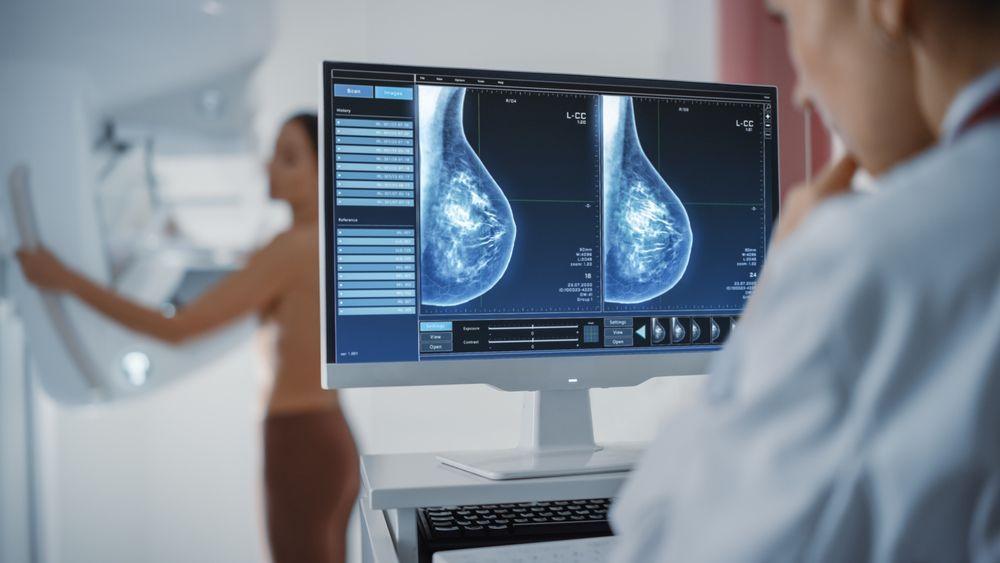Preparing for Your GP Job Interview in Australia: A Complete Guide for International Doctors
This article provides a detailed guide to General Practitioner (GP) job interviews in Australia for international physicians. It details the typical format of interviews, common questions and topics of discussion, providing strategies for a successful outcome.
There is substantial demand for international medical graduates to fill general practitioner positions across Australia due to shortages in the local workforce capacity, particularly outside the major cities. However competition for jobs can be intense and it is therefore essential to have a sound strategy for a job search with the goal of securing a favourable job offer in a desirable location.
The recruitment process is straightforward. It starts with the submission of a CV and cover letter, and hopeful shortlisting for a job interview, after which a job offer may be forthcoming. Thorough preparation for job interviews is recommended covering both the topics on which the interviewers are likely to focus and your own relevant concerns.
Common to all interviews, the aim of the interviewers is to evaluate the GPs clinical skills, administrative abilities, motivations for seeking the position and ability to function well as a member of the clinic staff, promoting a favourable impression of the clinic. Whilst the interviewers aim to establish your suitability for the position, and you must convince them of that, you must not lose sight of your own objectives in the process. The interview is also about determining if the opportunity aligns with your own career and family goals.
Research and Preparation for GP Interviews
Before addressing the standard topics covered in interviews, it is vital to start with some research. Hopefully you will have defined your own career and family goals, researched locations and have a fairly defined idea of what location and type of practice will suit you. You may favour the high patient volume bulk billing models of practice, or alternatively prefer the low patient volume high fee private billing practices or even the compromise of mixed billing.
Once you have a sound idea of what you are seeking, you can then assess each GP practice opportunity with its capacity to meet your objectives. An exact fit may be impossible, but a reasonable compromise should be achievable. You should have prepared a list of topics you need to discuss at interview with a clear understanding of your own "red lines".
Whilst researching practices, it is worth bearing in mind that each clinic has its own features and culture, often imposed by the company which operates and manages the clinic, usually termed the "service entity". GPs are self employed contractors, paid a percentage of the fee revenue they generate with the balance going to the service entity to cover staffing, property, equipment and administrative charges. The management capabilities of service entities varies from excellent to poor and an assessment of the clinic should include an overview of the facility management.
The first port of call is usually the clinic website where you can get a general idea of the size of the clinic by number of rooms and staff. It may list types of services provided, additional services and any special interests of the general practitioners working there, as well as equipment available. Some clinics have integral basic laboratories or radiological services. The location of the practice will provide some insight into the local patient demographics and potential competition from other clinics in the area.
Interview Format
Interviews start with a telephone or zoom / teams call often as an introduction to representative of the clinic and to assess genuine interest before proceeding to a formal job interview. The arrangement and conduct of job interviews can be time consuming and many clinics wish to eliminate candidates who are not considered to be serious about the position or are found to be unsuitable for the position. If this hurdle is cleared and both parties agree there is a prospect of a deal, the interview will proceed.
Formal job interviews are conducted remotely by zoom or teams by the other GPs in the clinic, the practice manager or owner of the practice. Attention to the functioning of remote call technology, sound, lighting, dress, background and internet connectivity are standard and covered in other articles.
Interviews are usually friendly, relaxed and often quite informal providing a comfortable venue for the exploration of the opportunity and its mutual suitability. The typical topics of discussion are detailed below. At the end of the call, follow up arrangements are usually detailed. This may be an immediate job offer, the prospect of a job offer pending the outcome of other interviews, an invitation for a site visit if feasible or the end of the process if one or both parties believe that there is no prospect for a successful deal.
Common Interview Topics and Questions
1. Clinical Competence and Experience
Your qualifications, experience in general practice and eligibility for MBA/AHPRA registration and RACGP PEP SP / FSP programs should be detailed in your CV and cover letter. The interviewers will wish to discuss this in more detail, particularly your experience with different patient demographics, practice locations and additional specialist interests. Expect these issues to be probed:
- Patient Volumes: average number of patients seen per day, duration of appointments (short versus long)
- Practice Locations: patient demographics, experience in rural or underserved communities
- Scope of practice: clinical strengths and ability to manage chronic diseases, other special interests, procedural competencies, psychiatry
- Teaching experience: experience as a trainer of GPs and teacher of medical students
- Career goals: ambitions to train in further enhanced skills such as emergency medicine, anaesthesia, obstetrics, rural and remote medicine.
2. Understanding of the Australian Healthcare System
Employers seek reassurance that you have researched the healthcare system and have an understanding of its method of working and variations from the system in which you have trained. This is particularly relevant for GPs from the UK who have worked as salaried GPs or partners in practices where revenue was generated via a capitation model. The fee for service activity model of Australia requires a different focus on activity and revenue generation and negotiation of a fair revenue percentage attributed to the service entity. Expect to be asked about:
- Medicare Billing and practice models: bulk billing, mixed billing and private models (see article on GP Contracts for details)
- Distribution Priority Areas (DPAs) and Modified Monash Models (MMM): classification of practice location into metropolitan, rural and remote areas
- Revenue generation: fee payments for medical services
- The role of service entities: the clinic operation and management service obligations of the service entity
- Net fee income: fees due to GP after deduction of the service entity percentage
3. Cultural Fit and Communication
Australian primary care clinics value doctors who build strong patient relationships, expand the patient pool of the clinic and increase the range of services whilst maintaining strong collegial relations with the clinic staff and clear, concise communication. Expect the following topics to be covered:
- Personal strengths and weaknesses: self insight into one's own capacities and limitations and their management
- Leadership skills: experience in leadership and ability to lead staff to achieve goals of the clinic
- Communication style: clear and concise communication with patients and staff
- The management of Aboriginal patients: special cultural programs to enhance healthcare outcomes and treatment compliance
4. Motivation, Professional Goals and Special Interests
Practices aim to build long term relationships with new recruits and therefore wish to understand you reasons for wishing to join them and your ultimate goals. Common topics of conversation are:
- Reasons for selecting the location and clinic as choice of place to practice: it is advisable to have researched both location and practice and have positive, convincing reasons for your selection. A vague response suggests a lack of enthusiasm which does not bode well for a successful long term agreement.
- Extra Hours: a willingness to work additional hours in the evening or at weekends can be beneficial for the practice particularly where there are lengthy patient waiting lists.
- Career goals: how do you envision your long term career? Do you have plans to enhance your practice scope with further training and qualifications which increase practice revenue?
- Proposed length of stay in Australia: practices usually offer new GPs contracts of 2 years duration with penalty clauses for early departure. However they may wish to know if your aim is a long term stay with a view to residency status and citizenship or a short term stay for further experience. This has an obvious impact on the type of visa which the practice can sponsor.
5. Practical Considerations
Interviews often finish with questions about the practical considerations of relocation and may wish to know the earliest date you anticipate being available to start work and the number of family members who will accompany you. These are important issues for the calculation of relocation expenses if offered and the need for locum tenens cover until your arrival. It is helpful to provide a reasonable estimate of start date and relocation costs so that favourable terms can be negotiated.
6: Prepare Questions
Prior to wrapping up the interview, the interviewers will usually invite the GP candidate to ask questions. This is your opportunity to clarify any issues which are still unclear and ensure that you have sufficient information to decide if the opportunity is right for you. You may wish to address the following topics:
- Billing model: this should be apparent from the job advert and description but is worth reconfirming
- Patient numbers: the average number of patient appointments per physician per day is the best indication of fee revenue levels.
- Service Entity Fees and Services: the service entity fee is expressed as a percentage of revenue and may be open to negotiation particularly if you can perform work which attracts higher billings. You also want to know the full extent of services which the service entity provides particularly the equipment and IT capabilities and staffing levels.
- Minimum income guarantee: ask if you can have a minimum income for at least 3-6 months whilst you establish yourself and build a patient base.
- Relocation allowances: help with the costly process of relocating a family is worth negotiating and helpfully paid in stages.
- Professional development: further leave or expenses to attend obligatory CPD and optional training is a valuable benefit worth negotiating.
After the Interview
After the initial interview, follow up is usually swift, hopefully with the offer of a contract. If you wish and are willing to travel, you may be able to make a site visit to the clinic to expect its facilities. Job offers consist of an offer letter with a contract setting out the terms of the offer in detail. Advice on reviewing these contracts and negotiating the terms can be read in our article about Australian GP service contracts.
If you have multiple offers to consider, review the contract in its entirety for an estimate of its value and do not focus narrowly on fee splits and billing. Also consider the practice location and its potential.
Conclusion
Preparing thoroughly for your GP job interview in Australia demonstrates professionalism, adaptability, and genuine interest in the role. By researching the healthcare system, clinic and its location and highlighting your clinical strengths and enthusiasm for the practice opportunity, you can stand out as an exceptional candidate.
For further assistance finding a suitable GP job in Australia, register your CV, browse advertised jobs or contact us to discuss your job search. You can find further insights and information in our Australian GP jobs section.
2 October 2025
Share this post on Social Media
Leave a Comment
SEARCH JOBS
Ready for a change? Whether you’re looking for higher compensation, greater autonomy, a better work-life balance, or just a change in scenery, we have job opportunities in wonderful locations across the world. Start your medical or dental job search today and embark on your next career move.
SIGN UP FOR JOB ALERTS
We believe everyone deserves to find their dream job. Be the first to hear about new practice opportunities in exciting locations across the world Simply sign up for job alerts in your chosen field, and we will email you when a new job in your specialty becomes available.


















